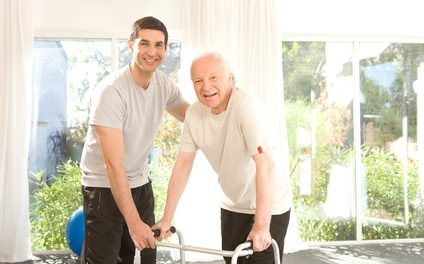Aquatic therapy is an amazing form of therapy for loved ones. Although be cautious if your loved on suffers from dementia. You have to gauge the diagnosis and status of your loved one to know if it is a good fit.
But if it is, there are many good things with water. Water can take the weight off of the joints and make it easier to move. This is especially true for those who have had hip fractures in the past or have had a stroke. By taking away some of the fear of falling there can be greater freedom of movement. Add to that flotation devices can help your loved one feel more comfortable.
Initially just start with water walking. This can help your loved one gain confidence in the water. You can progress from there to doing simple exercises and leg and arm movements. Full on swimming isn’t suggested without a caregiver and/or lifeguard in the water standing beside them.
You can even request aquatic therapy if you are in physical therapy or other rehabilitation. Many facilities offer aquatic therapy for the elderly patients or even young patients.
Classes are also available and that can help make social connections for your loved one. Socialization is often an overlooked need.
Also water can be good for the caregivers. When you are working with an older loved one the physical activity is minimal. Even a little in the water can reap benefits.
Check into facilities near you. Here are some questions to ask:
- Do you have a ramp into and out of your pool?
- Do you have a lift that is handicap accessible with trained staff to operate?
- Are there classes available that are predominantly elderly (or for your loved ones needs)?
- What is the cost of a day pass?





